Extra Challenge Tracing Worksheets Activities With Answers for Ages 5-9
20 filtered results
-
From - To
Discover our "Extra Challenge Tracing Worksheets" designed specifically for children ages 5-9! These engaging activities promote fine motor skills and enhance handwriting proficiency, all while making learning fun. Each worksheet offers a variety of tracing challenges that appeal to young learners, helping them develop critical writing skills at their own pace. With clear answer keys provided, parents and educators can easily track progress and assist when needed. Whether used in the classroom or at home, these worksheets are perfect for adding a little extra excitement to learning. Start your child's tracing journey today and witness their confidence and skills soar!


Letter A Tracing Page
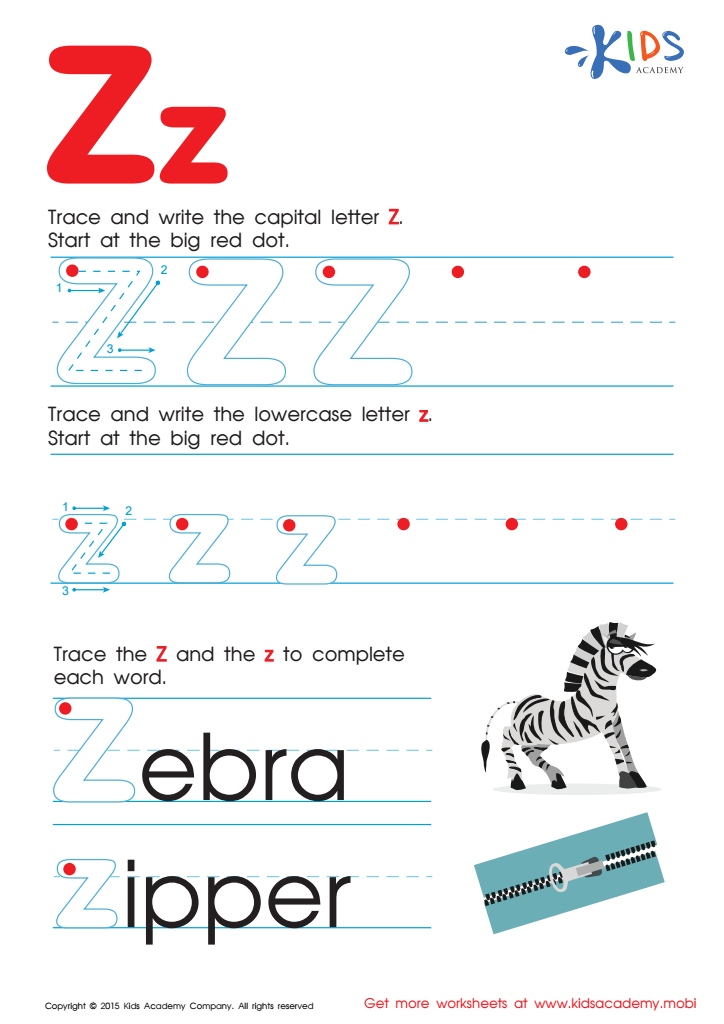

Letter Z Tracing Page


Letter R Tracing Page
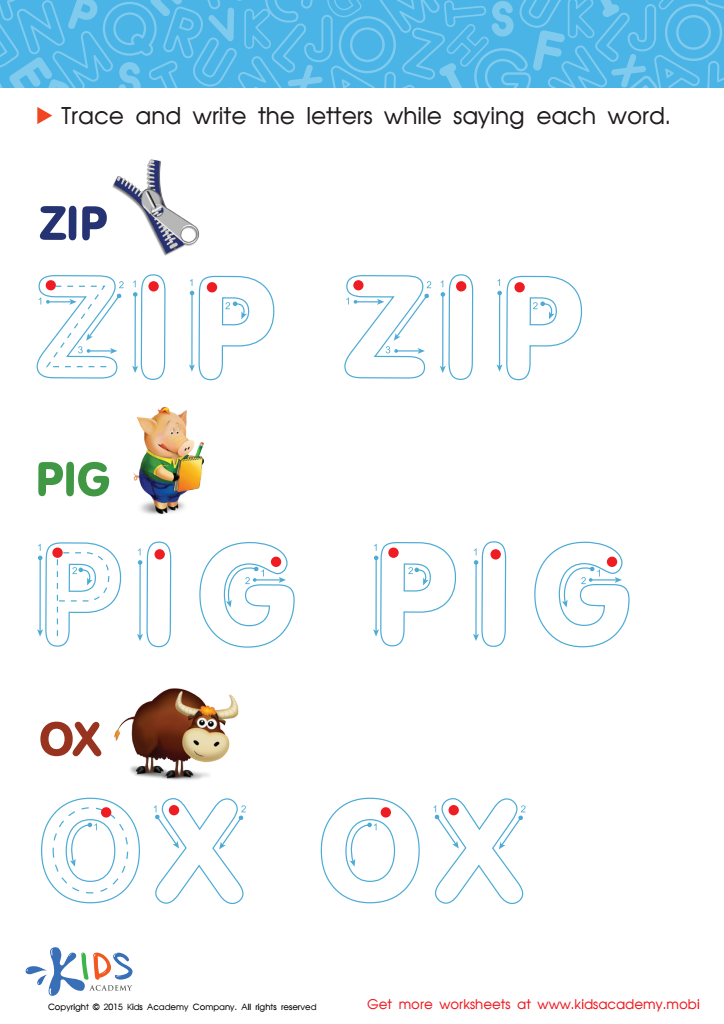

A Zip, a Pig and an Ox Spelling Worksheet


Letter X Tracing Page
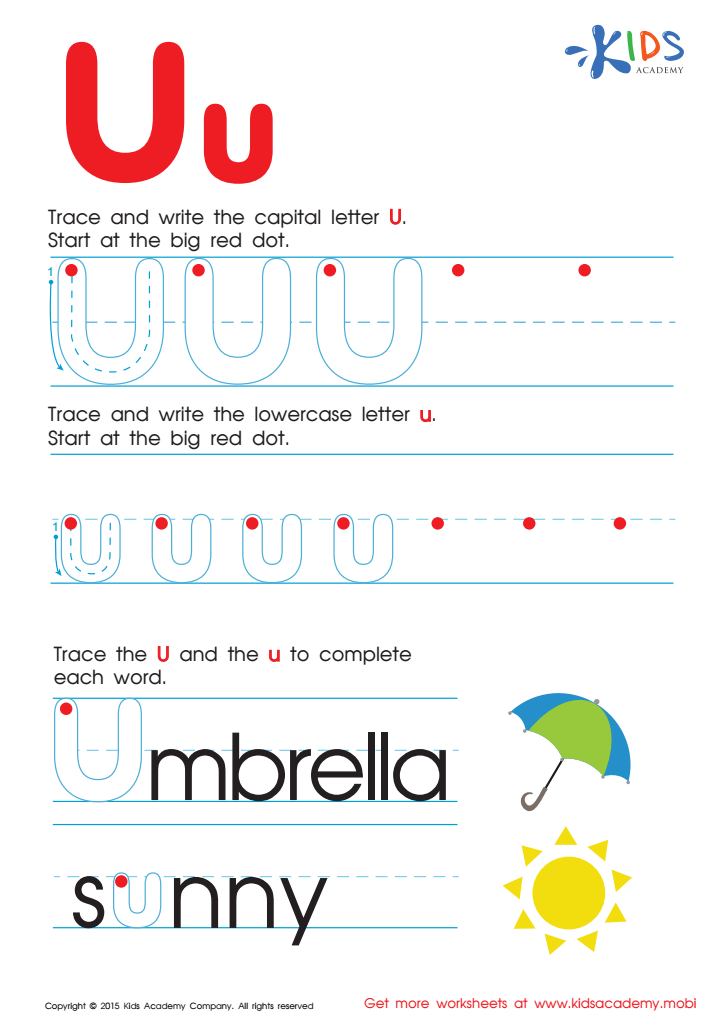

Letter U Tracing Page
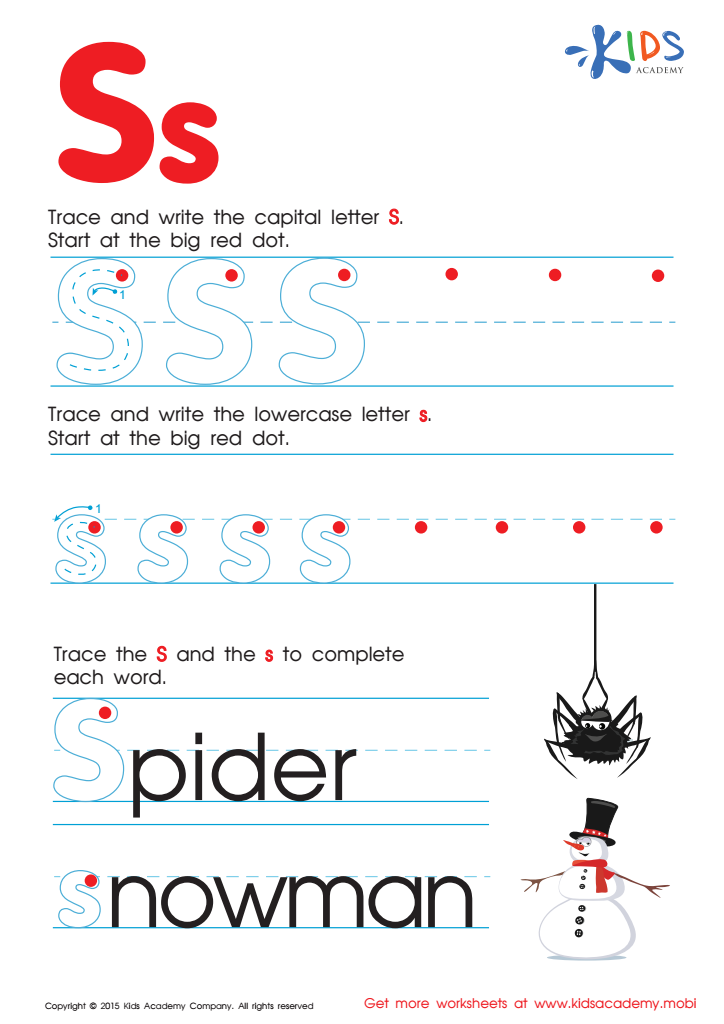

Letter S Tracing Page
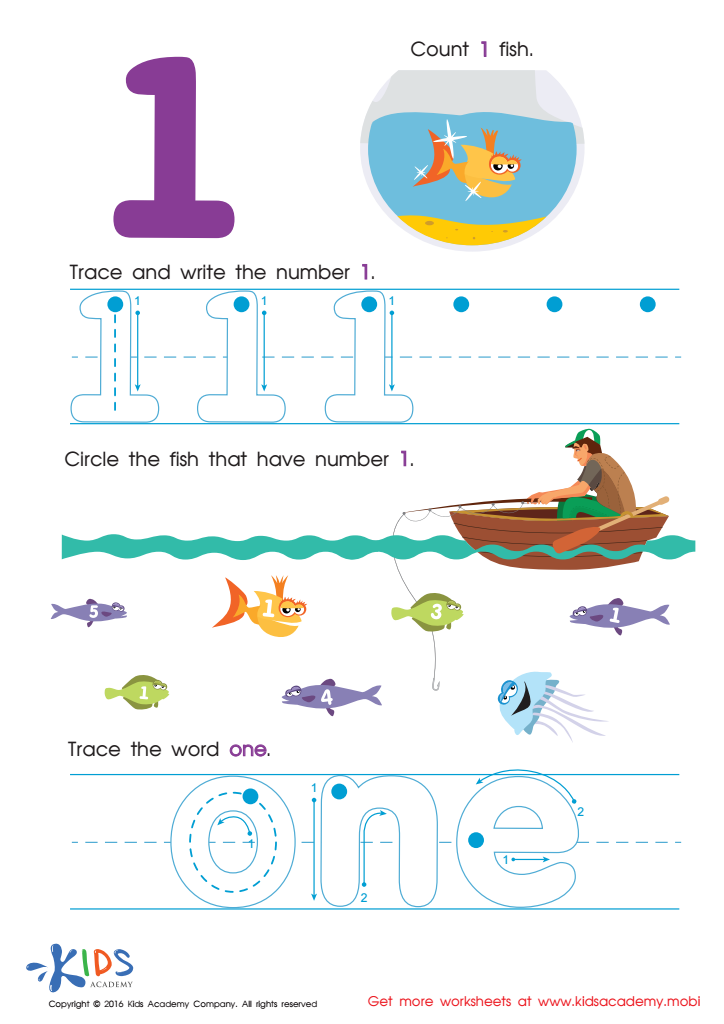

Learning to Write 1 Worksheet
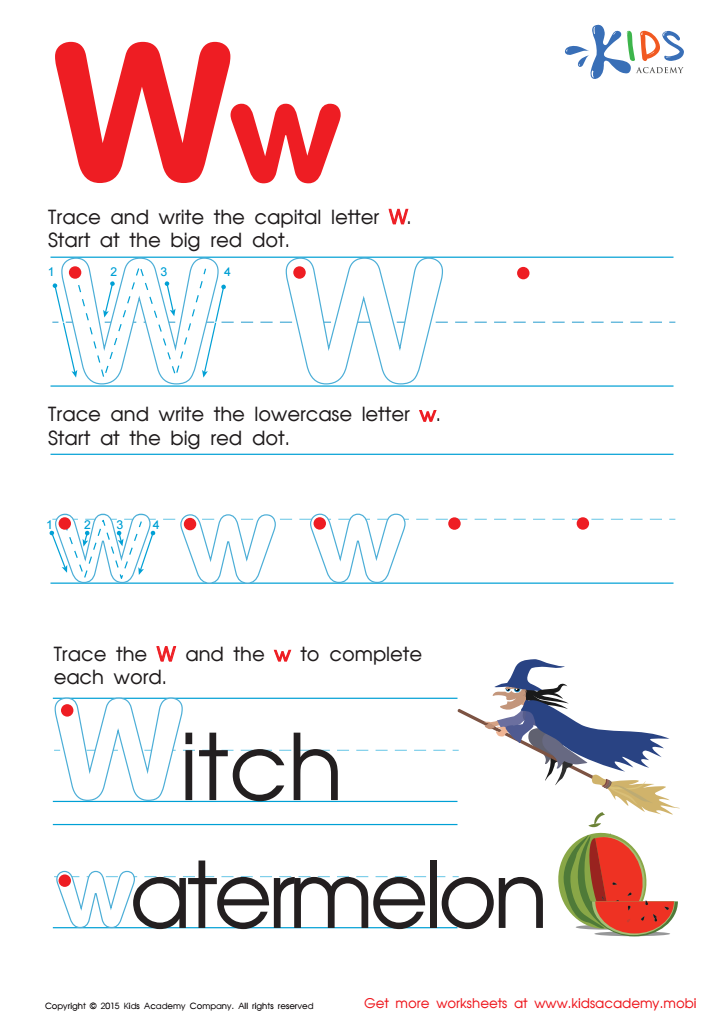

Letter W Tracing Page
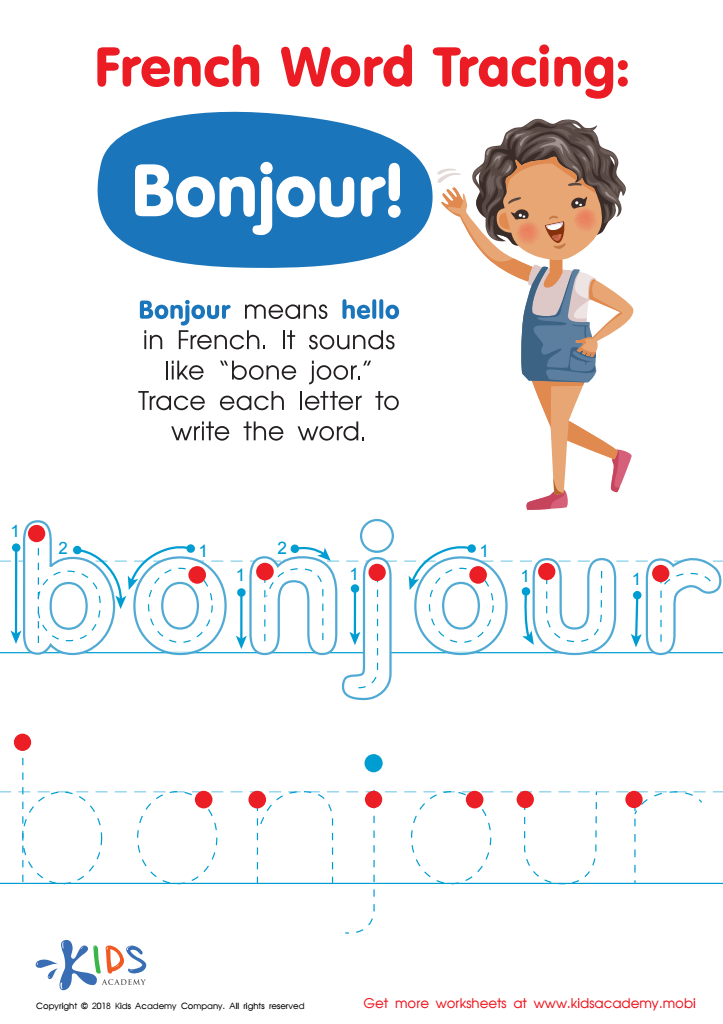

French Word Tracing: Bonjour Worksheet
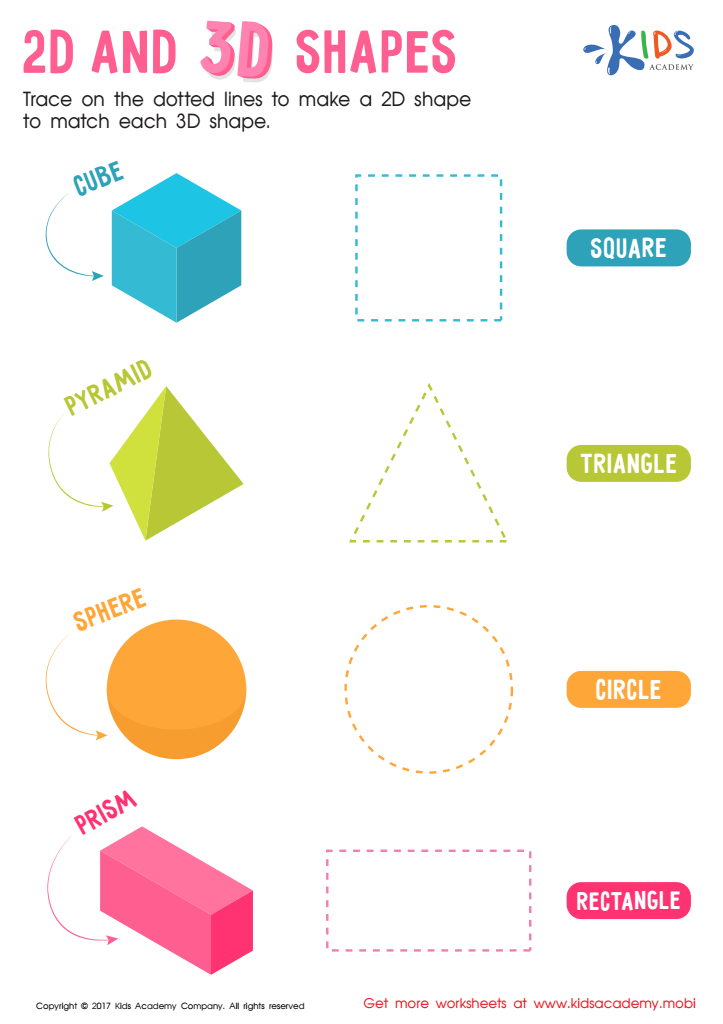

2D and 3D Shapes Worksheet
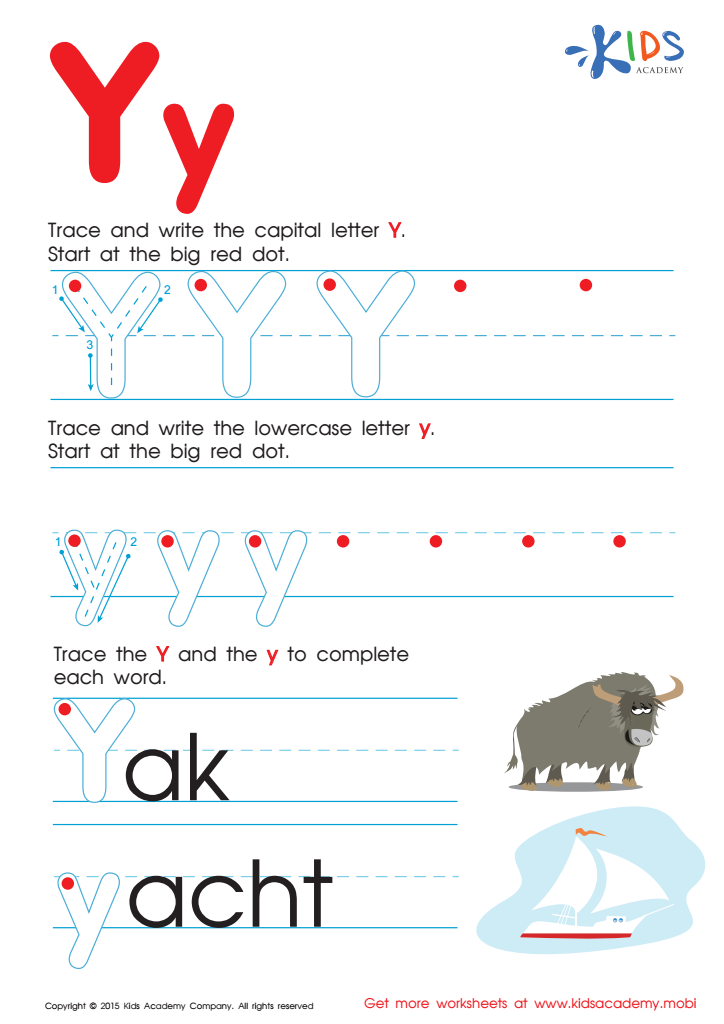

Letter Y Tracing Page
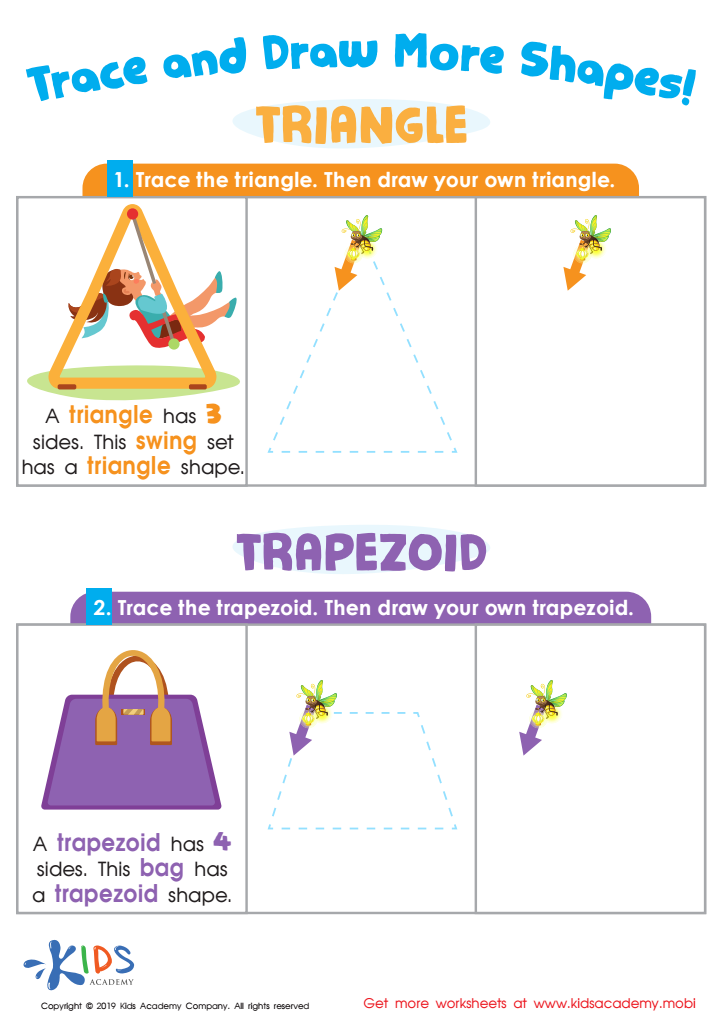

Trace and Draw More Shapes Worksheet
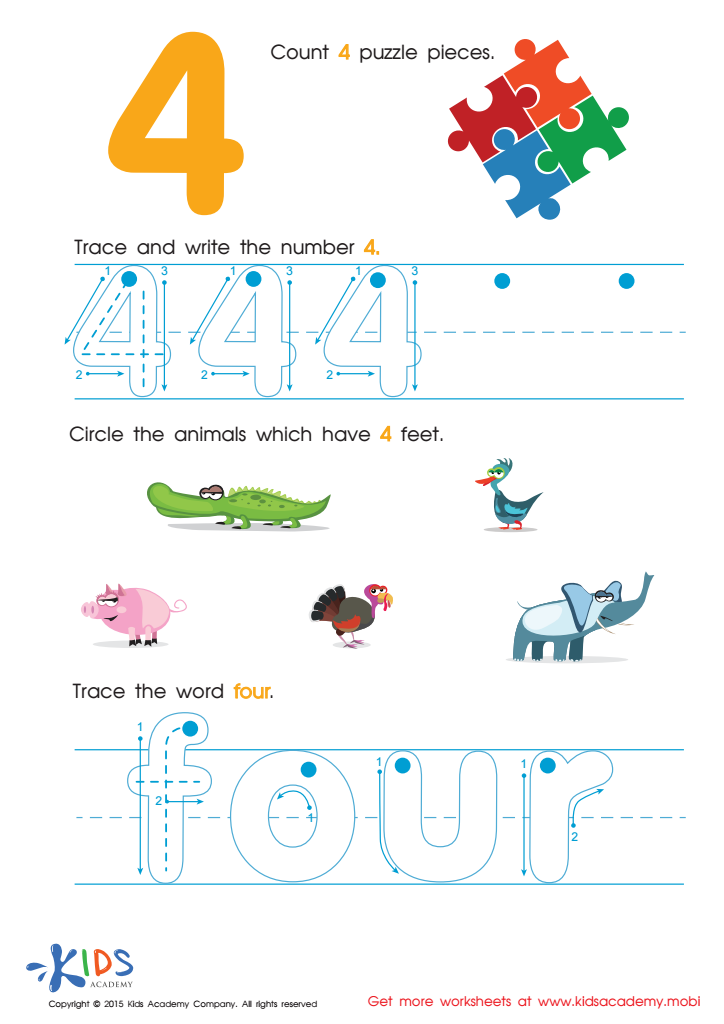

Teaching Children to Write Number 4 Worksheet
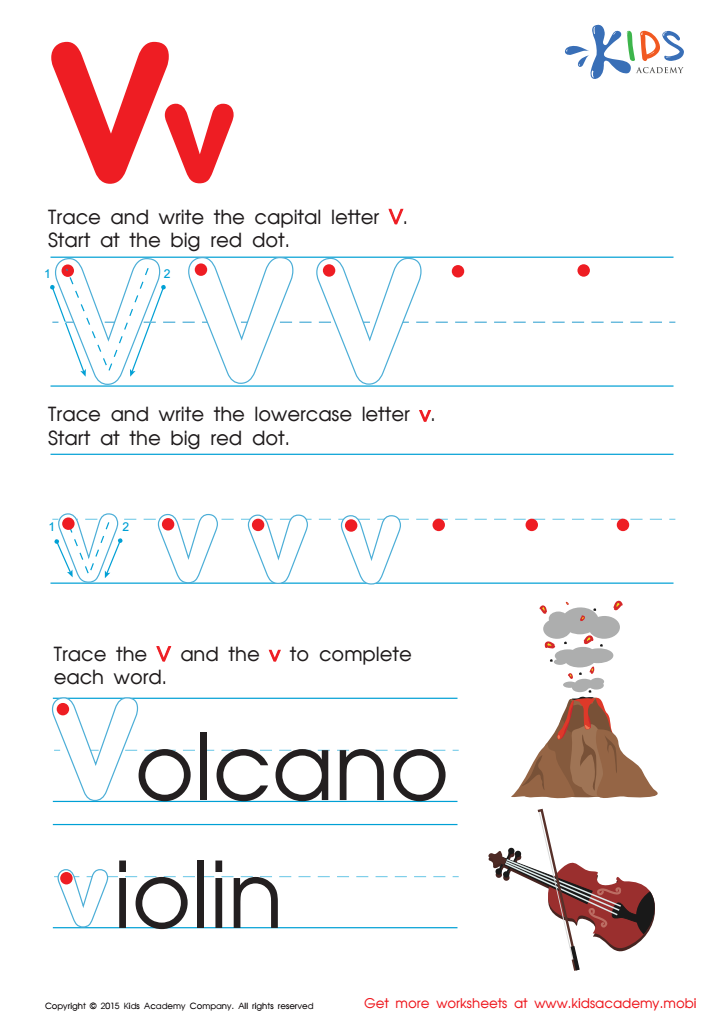

Letter V Tracing Page
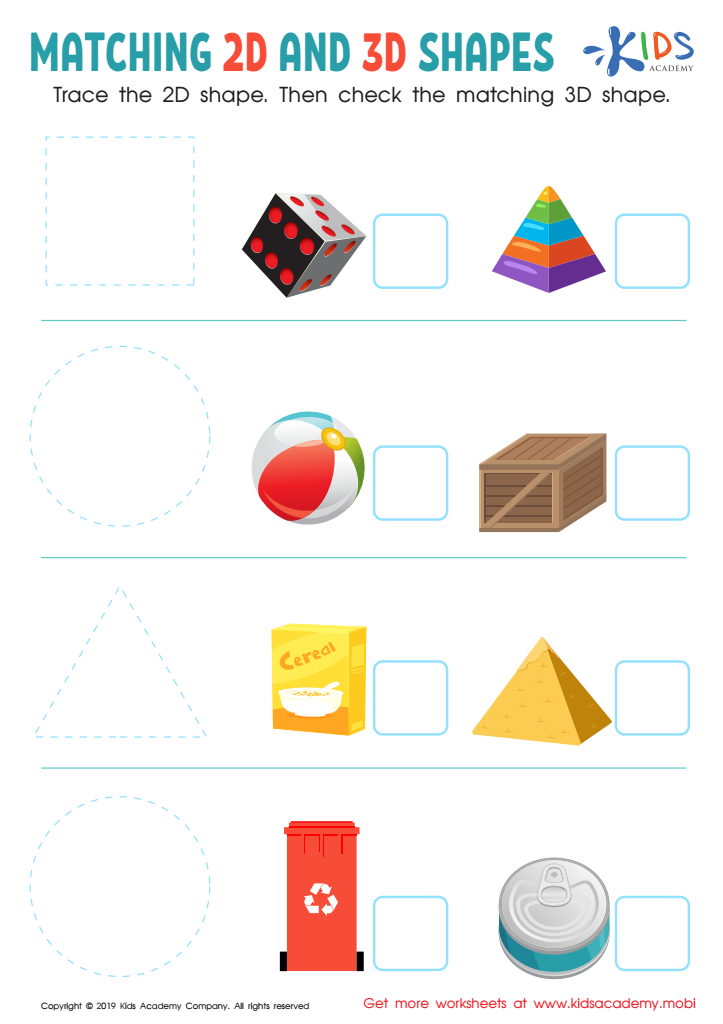

Matching 2D and 3D Shapes Worksheet


Santa Claus Tracing Winter Words Worksheet
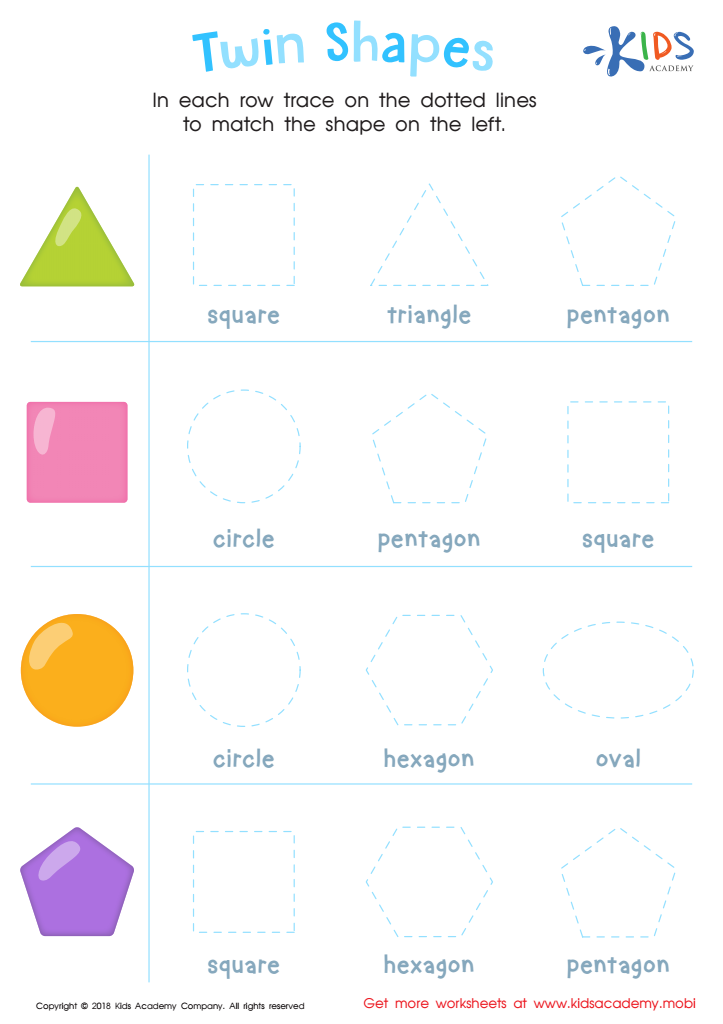

Twin Shapes Dot-to-Dot Worksheet
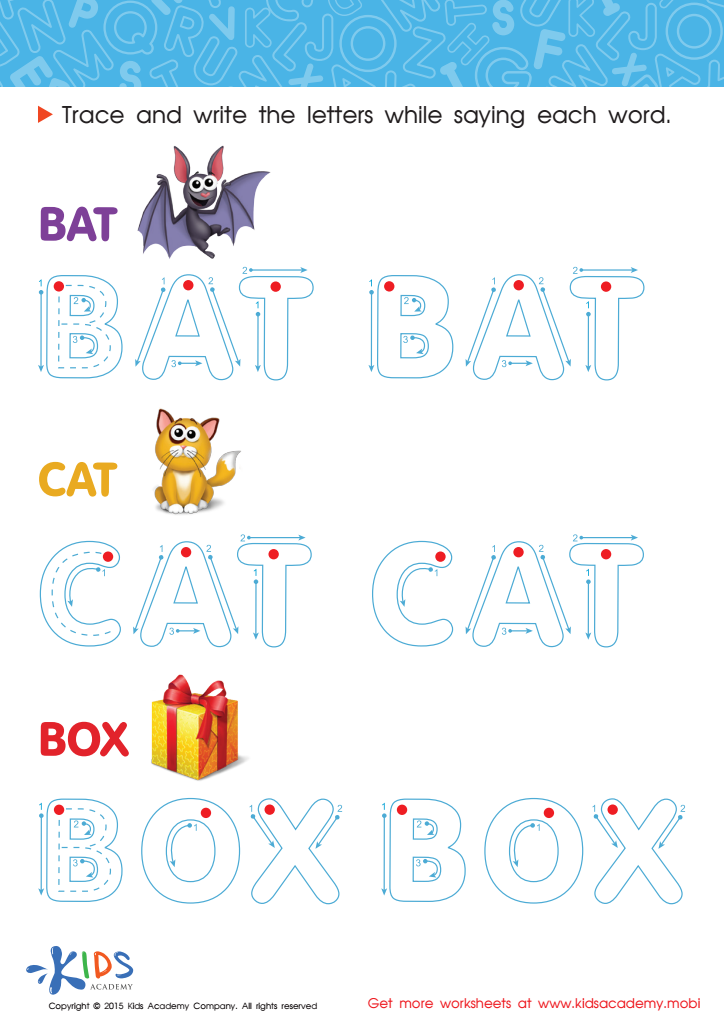

A Bat, a Cat and a Box Spelling Worksheet
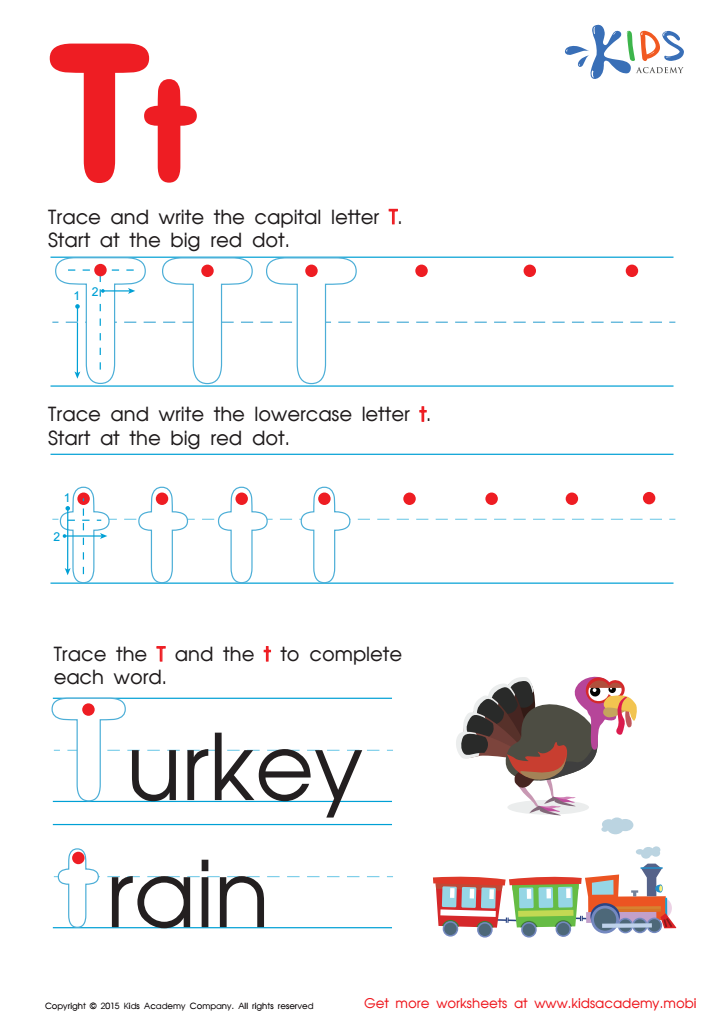

Letter T Tracing Page
Extra Challenge Tracing Activities with Answers for ages 5-9 play a crucial role in the development of young children, offering numerous educational and cognitive benefits. First, these activities enhance fine motor skills, which are essential for tasks such as writing, cutting, and drawing. By encouraging children to trace letters, numbers, and shapes, they develop hand-eye coordination and control, laying a strong foundation for future writing proficiency.
Moreover, tracing activities stimulate cognitive development by reinforcing concepts such as pattern recognition, spatial awareness, and phonetics. As children trace various forms, they engage in essential problem-solving and critical-thinking skills, which are vital for academic success.
Additionally, these activities serve as a tool for parents and teachers to engage children in a fun and interactive way. They can assess a child's progress and provide appropriate feedback, ensuring that each child progresses at their own pace. Furthermore, the presence of answers allows for immediate reinforcement and builds confidence as children see their successes.
In summary, Extra Challenge Tracing Activities enrich children's learning experiences, supporting their motor skills, cognitive abilities, and self-esteem, while also fostering a collaborative environment between parents and educators. Incorporating these activities into early education settings can lead to enhanced academic readiness and a love for learning.
 Assign to My Students
Assign to My Students






















